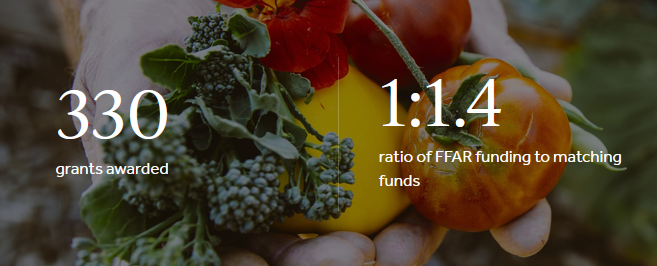Jun 21, 2023
Fellowship to improve fertilizers names winners
Winners have been announced for a fellowship that helps agronomic scientists create new more effective fertilizers for growers.
The Disruptive Fertilizer Technology Fellowship is designed to provide early career scientists with opportunities to advance research on precision fertilizer application methods, nutrient recommendation methods and guidance on land applications of animal waste to customize and enhance fertilizer efficiency.
 Ultimately, the fellowship, sponsored by the Foundation for Food & Agriculture Research (FFAR) and OCP North America (OCPNA), plans to deliver new innovations in fertilizer products that are safe, effective, commercially scalable and easily understood by farmers, according to a news release. The FFAR-OCP Fellowship is a two-year program supported by $250,000 from FFAR and OCPNA for a total program fund of $500,000.
Ultimately, the fellowship, sponsored by the Foundation for Food & Agriculture Research (FFAR) and OCP North America (OCPNA), plans to deliver new innovations in fertilizer products that are safe, effective, commercially scalable and easily understood by farmers, according to a news release. The FFAR-OCP Fellowship is a two-year program supported by $250,000 from FFAR and OCPNA for a total program fund of $500,000.
“Fertilizers are an essential input for producing healthy, high-yielding crops; however, plants may not absorb all the fertilizer applied, and excess fertilizer can produce harmful environmental consequences,” fellowship leaders said in the release. “Farmers need improved fertilizer technologies and guidance to improve soil and plant health, crop productivity and environmental resilience.”
To feed increasing populations, society needs high-yielding crops, but not at the environment’s expense, LaKisha Odom, FFAR Soil Health scientific program director, said in the release. “This is a one-of-its kind fellowship that supports transformative innovation like new seed and/or fertilizer coating treatments or enhanced precision application technology that can revolutionize the fertilizer industry,” she said.
The fellowship is accepting applications for 2023.
“Feeding the soil is the key to feeding the world, but a generic approach won’t suffice,” Amarjit S. Basra, OCPNA’s chief scientist, said in the release. “The agriculture sector varies greatly depending on the crop, soil and region. To truly support a transformative food system, we must adopt a new paradigm for responsible plant nutrition. This paradigm should prioritize nourishing plants in a soil- and climate-smart manner, accounting for the specific needs of each crop and environment.”

The 2022 FFAR-OCP Fellows, the Fellowship’s first cohort, include:
Utsav Shashvatt, a postdoctoral researcher at the University of California, Berkeley, who was awarded $74,997 recover nutrients in human waste to form two types of high-value fertilizers, controlled release and liquid, to offset conventional fertilizers use. Increased use of waste-derived fertilizers provides an opportunity to develop fertilizers from renewable resources and will help reduce dependence on conventional fertilizers, which are generated using non-renewable resources.
Maarten Everaert, an assistant professor at KU Leuven, was awarded $75,000 to increase phosphorus fertilizers access in sub-Saharan Africa through an innovative approach of phosphorus recycling using locally available resources. By improving their phosphorus-depleted soils, this project will help small-scale farmers to safeguard their agricultural productivity to meet local food demands, while also supporting limited use of external inputs, soil regeneration, wastewater treatment and minimal environmental impact.
FFAR builds public-private partnerships to fund research addressing food and agriculture challenges. FFAR was established in the 2014 Farm Bill to increase public agriculture research investments, fill knowledge gaps and complement the U.S. Department of Agriculture’s research agenda. FFAR’s model matches federal funding from congress with private funding and through collaboration and partnerships, FFAR advances actionable science benefiting farmers, consumers and the environment.
OCPNA is a subsidiary of the global plant-nutrition company OCP Group.






